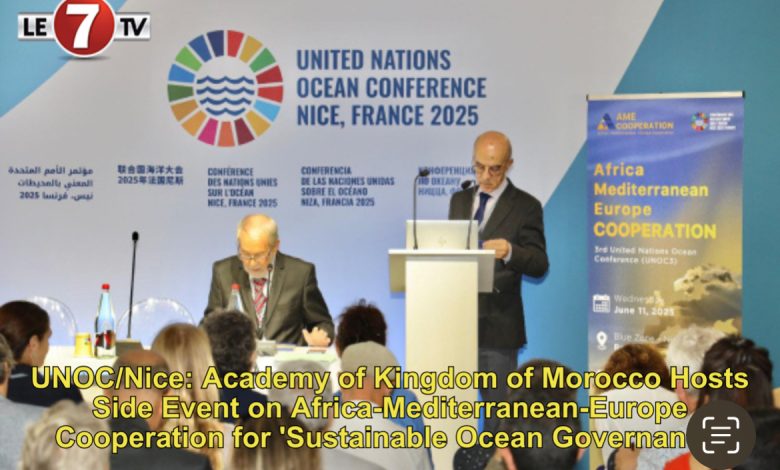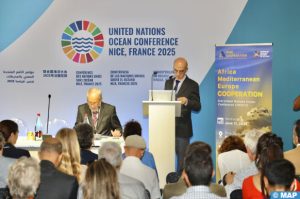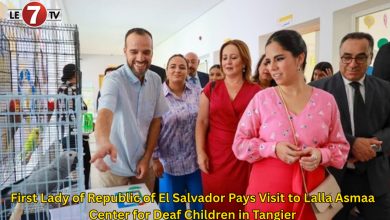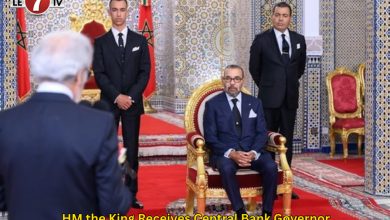UNOC/Nice: Academy of Kingdom of Morocco Hosts Side Event on Africa-Mediterranean-Europe Cooperation for ‘Sustainable Ocean Governance’
Nice - The Academy of the Kingdom of Morocco organized on Wednesday in Nice a side event dedicated to Africa-Mediterranean-Europe cooperation for "Sustainable Ocean Governance," on the sidelines of the third United Nations Ocean Conference (UNOC-3), being held in Nice until June 13.


Held under the theme “Cooperation for Sustainable Ocean Governance Bringing Together Africa, the Mediterranean and Europe,” this scientific meeting brought together key stakeholders from Africa, the Mediterranean, and Europe to contribute to building a strengthened partnership based on the “Roadmap to 2030: Co-piloting the Africa-Europe Ocean Partnership.”
On this occasion, the Academy’s Executive Director, Bachir Tamer emphasized that the stakes of this partnership—and more broadly, regional cooperation and South-South and North-South collaboration—are at the heart of Morocco’s priorities under the leadership of His Majesty King Mohammed VI. He highlighted in this regard the powerful message addressed by the Sovereign to participants of the “Africa for the Ocean” Summit, held on Monday as part of UNOC3 and delivered by Her Royal Highness Princess Lalla Hasnaa, Representative of His Majesty the King, who co-chaired the summit alongside French President Emmanuel Macron.
In this message, he recalled, His Majesty the King underlined Morocco’s call for a strategic reassessment of Africa’s maritime role, built around three pillars: blue growth, enhanced South-South cooperation and regional integration around oceanic spaces, and effective maritime action through Atlantic synergies.
Echoing this message, the president of the Moroccan Institute of Strategic Intelligence (IMIS) Abdelmalek Alaoui, stressed that “in line with the Royal message at UNOC, we must rethink the ocean not just as a resource to protect, but as a space to govern.”
Speaking at a roundtable on “Governance Facing the Challenges of the Blue Economy in Africa,” Alaoui identified three key failures that currently hinder African ocean governance efforts: “fragmented and non-inclusive governance,” “a lack of technological and informational sovereignty,” and “the absence of a coordinated blue diplomacy.”
Alaoui also joined other voices who advocated for the promotion of research and science within public-private partnerships and interdisciplinary approaches to support African countries in facing ocean challenges, especially in terms of observation with open data to inform policymakers. Training and capacity-building for African countries in this area were also among the recommendations, with a special emphasis on involving youth and local actors in these efforts.
Editorial team/le7tv








